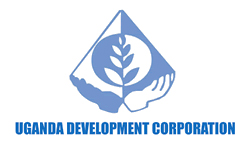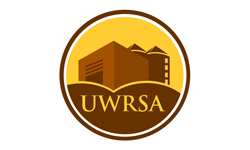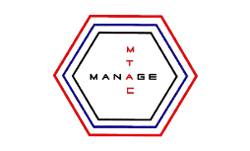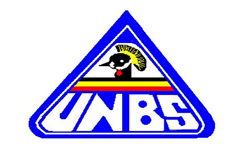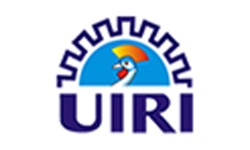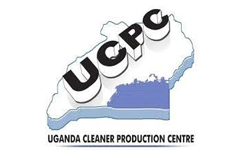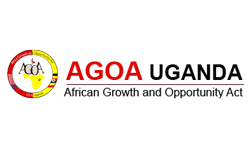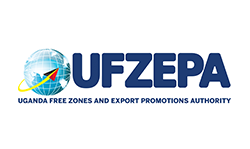UGANDA INDUSTRIAL RESEARCH INSTITUTE (UIRI)
Website: http://www.uiri.org
Background
UIRI was formally established by an Act of Parliament in 2002. H.E. the President to the Act on 30th July 2003. It is a progeny of the East African Industrial Research Organization (ESIRO) of the defunct East African Community (EAC)]. After the demise of the then EAC in 1977, the three member states continued with the splintered Industrial Research Organizations, and hence was born:
Kenya Industrial Research and Development Institute (KIRDI)
Tanzania Industrial Research and Development Institute (TIRDI)
Uganda Industrial Research Institute (UIRI)
With Uganda’s economic dislocation of the 70s and 80s, UIRI did not become fully operational until 1997 when, with a grant from the Government of People’s Republic of China (GPRC) a campus was built and some technologies for pilot plants installed. The formal handover of the modern facility to Uganda Government was effected in the year 2000. UIRI’s mandate is to engage in activities that will lead to rapid industrialization of Uganda.
UIRI’s Vision and Mission
To be the model institution and regional center of excellence, for incubation of industry and pioneering industrial Research and Development activities that could elevate the level of technology in Uganda and the region.
UIRI’s mission is:
1. to improve capacity and competence of indigenous entrepreneurs in undertaking viable industrial production processes and in their ability to produce high quality marketable products.
2. To provide demand driven Scientific and Industrial Research and Development and Internationally competitive technical services that will lead to rapid industrialization for the benefit of the people of Uganda.
UIRI’s Mandate and Objectives
UIRI’s mandate derived from the statute that established the institution is to:
1. undertake applied research, and
2. develop and acquire appropriate technology in order to create a strong, effective and competitive industrial sector for the rapid industrialization of Uganda.
In order to fulfil its mandate, UIRI has established the following corporate objectives:
1. To undertake Applied Industrial Research for the development of optimal production processes for Uganda’s nascent industry.
2. To develop and/or acquire appropriate technology in order to create a strong, effective, and competitive industrial sector for the rapid industrialization of Uganda.
3. c) To provide the necessary expert input towards Government Development Initiatives such as PEAP, PMA and MTCS.
Organization and Governance of UIRI
UIRI is governed by a Board of Directors, with an Executive Director as the Chief Executive responsible for day-to-day operations and policy implementation. The departmental structure is comprised of the following organizational units:
1. Administration
Responsible for the welfare of staff, the operability of facilities, financial diligence, logistical optimality, and inter-departmental coordination.
UIRI boasts of a competent well-trained management team. The core management team, led by the Executive Director is comprised of a Deputy Executive Director, Administrative Officer, Chief Technical Advisor, Research Officers (Heads of Departments). Current staff totals 50.
The combined experience in Training, Research, Business Analysis, and Engineering Operations is in excess of 145 yrs, ranging from a low of 2 to a high of 29 years, and averaging around 12 years.
A significant number of the management team have handled several projects of small, medium to large, both in size and complexity.
1. Food Science and Technology
Undertakes research in industrial processes and technology for adding value to food products. The division is responsible for running pilot plants for processing dairy, meat, bakery, fruits and vegetable products. Although the products from the pilot plants are available for sale to the public, the cardinal role of the pilot plants is to train entrepreneurs and other s from tertiary and university institutions.
2. Ceramics
Responsible for research, design and production of high quality ceramics products. Department maintains a showcase at the Institute and some of their products are available for sale to the public.
3. Training
Coordinates a spectrum of training programs from basic to advanced skill levels, and from the inchoate to the fully formed entrepreneur. Most training is conducted in-house and programs are run by the staff of the Institute (see appendix (1) for census of the Institute’s training activities).
4. Analytical Laboratories
Support internal research and offer services to the public in such areas as product analysis – content and context, physical and chemical properties, or any analytical service that the client might desire. Laboratories are divided into Analytical Chemistry, Microbiology and Mineral laboratory.
5. Engineering and Manufacturing
Runs a maintenance engineering workshop as well as a carpentry shop. Provides all engineering and technical maintenance services to the entire Institute, and coordinates any engineering/technical services that may be contracted from outside.
Operations and Functions
In fulfillment of its mandates, UIRI performs the following functions:
1. Identify and/or develop appropriate technologies and processes for the exploitation of our nation’s natural resources.
2. Upgrade and strengthen the existing indigenous technologies through basic and applied research.
3. Set-up pilot plants to demonstrate the operation and benefits of new technologies, and otherwise perform the role of an incubator for new industrial enterprises.
4. Design, develop and adapt machinery, tools, equipment and instruments suitable for small-scale enterprises, especially in rural areas.
5. Maintain a comprehensive data bank on industrial research, technologies, materials and products.
6. Facilitate the provision of technical advice and other assistance to existing enterprises in order to improve their competences and their operational efficiencies.
7. Provide research findings to entrepreneurs to assist them in setting up new projects.
8. Collaborate with other organizations, both nationally and internationally, to create synergies to improve knowledge, networking and capacity building for the benefit of our client base and for rapid industrialization through technology transfer.
9. Serve as a production technology reference center.
Background
UIRI was formally established by an Act of Parliament in 2002. H.E. the President to the Act on 30th July 2003. It is a progeny of the East African Industrial Research Organization (ESIRO) of the defunct East African Community (EAC)]. After the demise of the then EAC in 1977, the three member states continued with the splintered Industrial Research Organizations, and hence was born:
Kenya Industrial Research and Development Institute (KIRDI)
Tanzania Industrial Research and Development Institute (TIRDI)
Uganda Industrial Research Institute (UIRI)
With Uganda’s economic dislocation of the 70s and 80s, UIRI did not become fully operational until 1997 when, with a grant from the Government of People’s Republic of China (GPRC) a campus was built and some technologies for pilot plants installed. The formal handover of the modern facility to Uganda Government was effected in the year 2000. UIRI’s mandate is to engage in activities that will lead to rapid industrialization of Uganda.
UIRI’s Vision and Mission
To be the model institution and regional center of excellence, for incubation of industry and pioneering industrial Research and Development activities that could elevate the level of technology in Uganda and the region.
UIRI’s mission is:
1. To improve capacity and competence of indigenous entrepreneurs in undertaking viable industrial production processes and in their ability to produce high quality marketable products.
2. To provide demand driven Scientific and Industrial Research and Development and Internationally competitive technical services that will lead to rapid industrialization for the benefit of the people of Uganda.
UIRI’s Mandate and Objectives
UIRI’s mandate derived from the statute that established the institution is to:
1. undertake applied research, and
2. develop and acquire appropriate technology in order to create a strong, effective and competitive industrial sector for the rapid industrialization of Uganda.
In order to fulfil its mandate, UIRI has established the following corporate objectives:
1. To undertake Applied Industrial Research for the development of optimal production processes for Uganda’s nascent industry.
2. To develop and/or acquire appropriate technology in order to create a strong, effective, and competitive industrial sector for the rapid industrialization of Uganda.
3. c) To provide the necessary expert input towards Government Development Initiatives such as PEAP, PMA and MTCS.
Organization and Governance of UIRI
UIRI is governed by a Board of Directors, with an Executive Director as the Chief Executive responsible for day-to-day operations and policy implementation. The departmental structure is comprised of the following organizational units:
1. Administration
Responsible for the welfare of staff, the operability of facilities, financial diligence, logistical optimality, and inter-departmental coordination.
UIRI boasts of a competent well-trained management team. The core management team, led by the Executive Director is comprised of a Deputy Executive Director, Administrative Officer, Chief Technical Advisor, Research Officers (Heads of Departments). Current staff totals 50.
The combined experience in Training, Research, Business Analysis, and Engineering Operations is in excess of 145 yrs, ranging from a low of 2 to a high of 29 years, and averaging around 12 years.
A significant number of the management team have handled several projects of small, medium to large, both in size and complexity.
1. Food Science and Technology
Undertakes research in industrial processes and technology for adding value to food products. The division is responsible for running pilot plants for processing dairy, meat, bakery, fruits and vegetable products. Although the products from the pilot plants are available for sale to the public, the cardinal role of the pilot plants is to train entrepreneurs and other s from tertiary and university institutions.
2. Ceramics
Responsible for research, design and production of high quality ceramics products. Department maintains a showcase at the Institute and some of their products are available for sale to the public.
3. Training
Coordinates a spectrum of training programs from basic to advanced skill levels, and from the inchoate to the fully formed entrepreneur. Most training is conducted in-house and programs are run by the staff of the Institute (see appendix (1) for census of the Institute’s training activities).
4. Analytical Laboratories
Support internal research and offer services to the public in such areas as product analysis – content and context, physical and chemical properties, or any analytical service that the client might desire. Laboratories are divided into Analytical Chemistry, Microbiology and Mineral laboratory.
5. Engineering and Manufacturing
Runs a maintenance engineering workshop as well as a carpentry shop. Provides all engineering and technical maintenance services to the entire Institute, and coordinates any engineering/technical services that may be contracted from outside.
Operations and Functions
In fulfillment of its mandates, UIRI performs the following functions:
1. Identify and/or develop appropriate technologies and processes for the exploitation of our nation’s natural resources.
2. Upgrade and strengthen the existing indigenous technologies through basic and applied research.
3. Set-up pilot plants to demonstrate the operation and benefits of new technologies, and otherwise perform the role of an incubator for new industrial enterprises.
4. Design, develop and adapt machinery, tools, equipment and instruments suitable for small-scale enterprises, especially in rural areas.
5. Maintain a comprehensive data bank on industrial research, technologies, materials and products.
6. Facilitate the provision of technical advice and other assistance to existing enterprises in order to improve their competences and their operational efficiencies.
7. Provide research findings to entrepreneurs to assist them in setting up new projects.
8. Collaborate with other organizations, both nationally and internationally, to create synergies to improve knowledge, networking and capacity building for the benefit of our client base and for rapid industrialization through technology transfer.
9. Serve as a production technology reference center.

